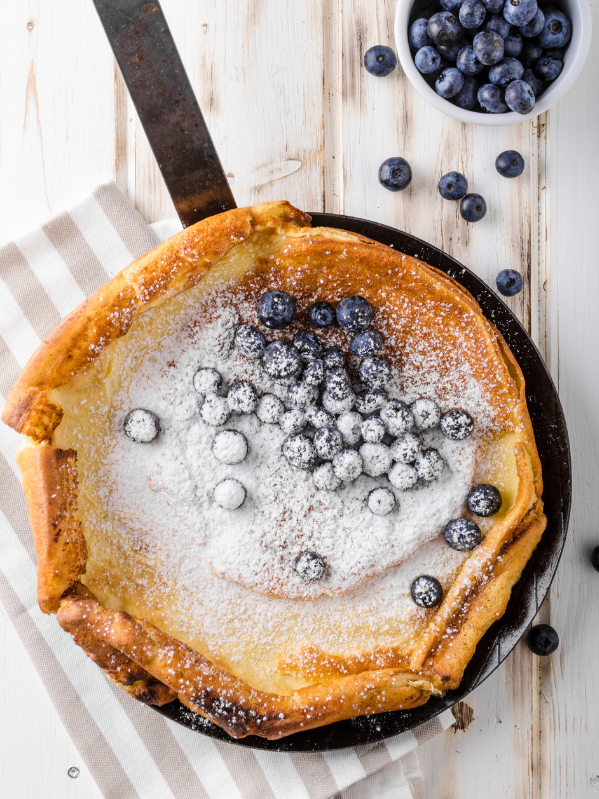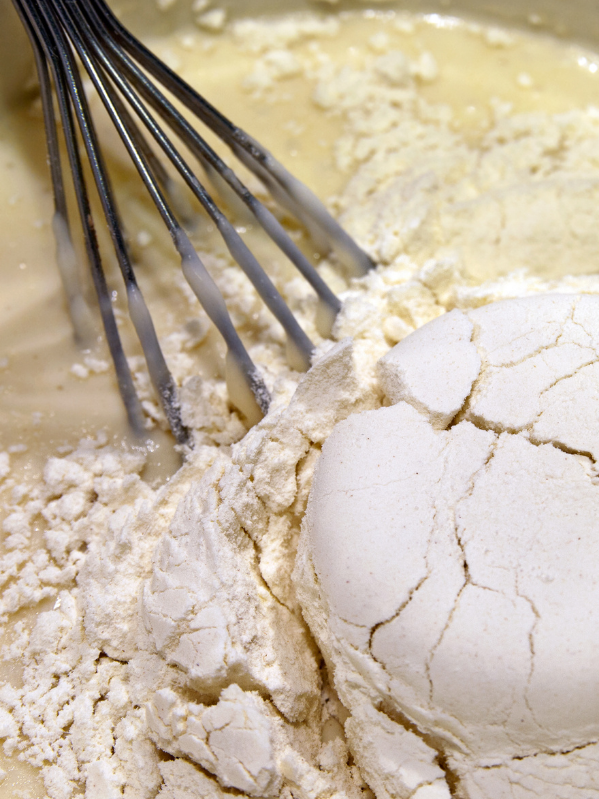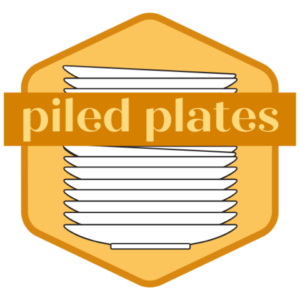Making pancakes is a delicious and festive way to start the day.
They’re definitely one of my favourite breakfast items! I just love the way they taste and how easy they are to make.
There are so many different variations of pancakes that you can make that I can’t think of an excuse to not adore them.
However I think we can all relate to the feeling of being in the mood for pancakes but coming to the realization that you’re out of milk.
As you’ve stumbled across this article, chances are you’re finding yourself in this situation right now!
You’ve probably started to wonder: can you use water instead of milk for pancakes?
Well, despair no more, I’ve totally got you covered! Let’s find out right away.
The answer is that you can definitely make pancakes with water instead of milk, but they will not taste as rich and fluffy as pancakes made with milk. As water does not contain the same nutrients as milk, your pancakes may end up being a little bit more dense.

If you are looking for an alternative to regular milk that gives off a richer taste than water would, consider using milk substitutes (plant-based milk such as almond milk or soy milk).
Another option, if you don’t happen to have any (plant-based) milk lying around, is to add a tablespoon of oil or butter to your pancake batter when making them with water as this will help to give them a bit more flavour and richness.
Eggs are also a great way to add richness and flavour to your pancakes, so consider adding one or two eggs to the batter if you are looking for a more pleasurable breakfast.
The exact amount of eggs you should use depends on the amount of pancake batter you are making.
In general, I would say that for every cup of pancake batter you want to add one egg.
However, keep in mind that this is just a guideline, and you can always reduce the amount of eggs you are using if you feel that your batter is too thick, or add an extra egg if you feel it could be a bit richer.
If you happen to have some milk powder in your pantry, you can make richer tasting pancakes with that as well by mixing the milk powder with water according to the instructions on the package and then add it to the pancake batter.
Regardless of whether you use milk or water, one key ingredient for delicious pancakes is ensuring that the griddle or frying pan is hot enough before adding the batter. If it isn’t hot enough, your pancakes will likely turn out to be soggy and not cooked through.
A pan I personally love to use and can recommend for making pancakes is the Tefal Ingenio Expertise Frying Pan. It’s pretty large and perfect for making pancakes!
Can You Use Water Instead of Milk for Bisquick Pancakes?
You can make pancakes with water instead of milk using Bisquick. Again, they will not taste as rich and fluffy as those made with milk, but they will still be delicious. As Bisquick already contains some baking powder, you won’t need to add baking powder to the batter if making them with water.
Consider adding a tablespoon of oil or butter to your pancake batter when making them with water as this will help to give them more flavour and creaminess.
Adding one or two eggs can also be a great way to add that little extra something to your Bisquick pancakes.
Can You Use Water Instead of Milk for Aunt Jemima Pancakes?
You can use water instead of milk to make Aunt Jemima pancakes. Even though the taste may defer slightly from those made with milk, they will still be enjoyable. Again, adding a tablespoon of butter or oil to your pancake batter when making them with water will give them more flavour.
Can You Use Water Instead of Milk for Hungry Jacks Pancakes?
Using water instead of milk to make pancakes with Hungry Jacks pancake mix is perfectly fine. Even though the end result will not be as fluffy as those made with milk, but they will still likely turn out to be quite good.
As Hungry Jacks Pancakes tends to be a little bit thicker than other pancake mixes, you may want to add an extra tablespoon of water to the batter when making them with water instead of milk.
However, do make sure to add small portions of water at a time so the pancake mix doesn’t turn out too thin which will make the pancakes difficult to flip.
Can You Use Water Instead of Milk for Pancake Mix?
If you are using a pancake mix that doesn’t call for water, you can still use it instead of milk. The pancakes will not be as richly flavoured as those made with milk, but they will still taste good.
The amount of water you need is usually the same as the amount of milk called for in the recipe.
There are different types of pancake mixes available on the market, so it is important to read the instructions on the package before deciding whether to use water or milk.
Some pancake mixes also call for the use of eggs, while others don’t.
If you are looking for a vegan-friendly pancake mix, there are several brands that offer vegan-friendly pancake mixes that can be made with water such as Bob’s Red Mill and Bisquick.

Other Questions You May Have
What are some add-in options for pancake batter?
Some popular add-in options for pancake batter include chocolate chips, fresh fruit, or a dash of vanilla extract. You can also add lemon juice to make lemon pancakes or buckwheat flour for a gluten-free option.
What is the best way to achieve crispy edges on pancakes?
To achieve crispy edges on pancakes, cook them on medium heat and use a cooking spray or melted butter to coat the frying pan. Flip the pancakes once air bubbles start to form on the surface.
What is the shelf life of pancake batter?
Pancake batter can be stored in an airtight container in the refrigerator for up to 2 days. After that, it may start to lose its leavening power and result in less fluffy pancakes.
What is the best way to achieve a thicker batter consistency for pancakes?
The best way to achieve a thicker batter consistency for pancakes is to use whole milk or a dairy-free milk alternative that has a higher fat content. You can also use whole wheat flour or add in extra dry ingredients like milk powder.
Should you add butter to pancake batter?
It’s not necessary to add butter to pancake batter, but some recipes may call for melted butter to be added to the wet ingredients. This can add a richer flavor and help achieve a crispy edge on the pancakes.
What is the best batter consistency for making traditional pancakes?
The best batter consistency for making traditional pancakes is a medium-thick consistency. The batter should be pourable but not too runny, and it should hold its shape when poured onto the frying pan.
In Conclusion
So there you have it, if you happen to be out of milk but still have an appetite for pancakes, you can definitely make pancakes with water instead of milk. However, they probably won’t taste quite as rich and delicious.
If you are looking for a more flavourful and matching alternative to water, consider using a nut milk (such as almond milk or coconut milk) or some oil or butter. Adding an egg or two to the pancake batter will benefit the taste as well.
Another very important thing to remember, whether you’re using water or milk, is to make sure your griddle or frying pan is hot enough before adding the batter. As this will help you to ensure that your pancakes cook through and don’t turn out too soggy.
